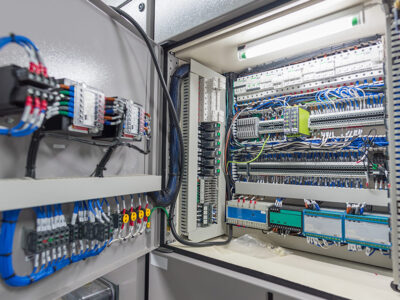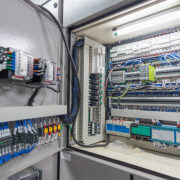
- The Importance of Metrology and Calibration Training
Metrology and calibration training play a crucial role in ensuring the accuracy and reliability of measurements in various industries. Metrology is the science of measurement, while calibration is the process of comparing the measurement performance of an instrument or system with a recognized standard to determine its accuracy. The training in these areas is essential for professionals involved in quality assurance, testing, manufacturing, research, development, and other sectors where precise measurements are critical.
1.1 Understanding the Basics of Metrology
At its core, metrology is about understanding measurement and its uncertainties. It involves the study of measurement techniques, standards, and systems to ensure the accuracy and traceability of measurements. In metrology training, participants are introduced to the fundamental concepts of measurement science, including units of measurement, measurement errors, uncertainty analysis, and statistical methods for evaluating measurement data.
1.2 Benefits of Calibration Training for Industries
Calibration training provides individuals and industries with the knowledge and skills necessary to perform accurate and reliable calibrations. By undergoing calibration training, professionals can ensure that their measurement instruments and equipment are aligned with recognized standards, reducing measurement errors and improving the quality of products and services. Calibration training also helps organizations comply with regulatory requirements, industry standards, and customer expectations.
1.3 The Role of Metrology and Calibration in Quality Assurance
Metrology and calibration play a crucial role in quality assurance processes across industries. Accurate measurements and calibrated instruments are essential for verifying the conformity of products and services, ensuring compliance with regulations and standards, and maintaining consistency in manufacturing and testing processes. Metrology and calibration training equip professionals with the knowledge and skills to carry out these tasks effectively, contributing to the overall quality and reliability of products and services.
- Choosing the Right Metrology and Calibration Training Program
When it comes to choosing a metrology and calibration training program, it is essential to consider several factors to ensure that the training meets your needs and objectives. Here are some key considerations:
2.1 Evaluating Accredited Training Institutions
One of the first steps in choosing a metrology and calibration training program is to evaluate the accreditation of the training institution. Accreditation ensures that the program meets industry standards and is delivered by qualified instructors. Look for training institutions that are accredited by recognized bodies such as the National Institute for Standards and Technology (NIST) or the International Organization for Standardization (ISO).
2.2 Professional Certification Options in Metrology and Calibration
Obtaining professional certifications in metrology and calibration can enhance your credibility and career prospects. Look for training programs that offer certification options recognized by industry organizations such as the American Society for Quality (ASQ) or the National Association for Proficiency Testing (NAPT). These certifications demonstrate your competence and proficiency in the field and can open doors to advanced career opportunities.
2.3 Tailoring Training to Industry-Specific Needs
Different industries have unique metrology and calibration requirements. It is crucial to choose a training program that can be tailored to your industry’s specific needs. For example, if you work in the pharmaceutical industry, look for a program that covers Good Manufacturing Practices (GMP) and specific calibration methodologies applicable to the industry. Customized training ensures that you acquire the relevant skills and knowledge to address the challenges and requirements of your industry.
- Key Skills and Techniques Taught in Metrology and Calibration Training
Metrology and calibration training programs focus on equipping participants with a range of essential skills and techniques necessary for accurate measurements and calibrations. Here are some key areas covered in metrology and calibration training:
3.1 Understanding Measurement Uncertainty and Error Analysis
Measurement uncertainty is an unavoidable component of any measurement process. In metrology and calibration training, participants learn how to evaluate and quantify measurement uncertainties using statistical methods. They also learn techniques for error analysis, including identifying and minimizing sources of measurement error. These skills are crucial for ensuring reliable and traceable measurements.
3.2 Mastering Advanced Calibration Methods and Equipment
Metrology and calibration training go beyond the basics and delve into advanced calibration methods and equipment. Participants learn about different calibration techniques, such as the comparison method and the reference standard method. They also gain hands-on experience in using various calibration equipment, such as multimeters, oscilloscopes, temperature controllers, and pressure gauges. Mastering these advanced methods and equipment allows professionals to perform calibrations accurately and confidently.
3.3 Practical Application of Metrology in Real-world Scenarios
Metrology training programs often include practical exercises and case studies to apply the learned principles in real-world scenarios. Participants learn how to develop measurement systems, create calibration procedures, and analyze measurement data. These practical exercises enhance problem-solving skills and enable participants to apply metrology concepts effectively in their workplaces.
- Career Opportunities and Advancement in Metrology and Calibration
Metrology and calibration professionals have a wide range of career opportunities across various industries. Here are some key aspects of career opportunities and advancement in metrology and calibration:
4.1 Exploring Job Roles in Metrology and Calibration
Professionals with metrology and calibration expertise can pursue diverse job roles, including metrologist, calibration technician, quality control specialist, quality assurance manager, laboratory manager, and compliance officer. They can work in industries such as manufacturing, automotive, aerospace, healthcare, pharmaceuticals, and research and development. The demand for skilled metrology and calibration professionals is high, as accurate measurements are crucial in ensuring product quality and regulatory compliance.
4.2 Salary Prospects and Industry Demands
Metrology and calibration professionals are in high demand, and their salaries reflect the importance of their roles. Salaries can vary based on factors such as experience, certifications, industry, and location. According to the United States Bureau of Labor Statistics, the median annual wage for calibration technicians in the United States was $54,560 in May 2020. With specialization and experience, professionals can command higher salaries and enjoy excellent career prospects in this field.
4.3 Continuing Education and Professional Development in Metrology
Continuing education and professional development are essential for staying updated with the latest trends and advancements in metrology and calibration. Professionals can attend conferences, workshops, and seminars to expand their knowledge and network with industry experts. They can also pursue advanced certifications or academic degrees to enhance their skills and qualifications. Continuous learning and professional development open doors to advanced career opportunities and leadership roles in metrology and calibration.
FAQ
Question: What is metrology?
Answer: Metrology is the science of measurement, involving the study of measurement techniques, standards, and systems to ensure accuracy and traceability.
Question: What is calibration?
Answer: Calibration is the process of comparing the measurement performance of an instrument or system with a recognized standard to determine its accuracy.
Question: Why is metrology and calibration training important?
Answer: Metrology and calibration training are essential for professionals involved in quality assurance, testing, manufacturing, research, development, and other sectors where precise measurements are critical. It ensures accurate and reliable measurements, reducing errors and improving product quality.
Question: How do metrology and calibration contribute to quality assurance?
Answer: Accurate measurements and calibrated instruments are essential for verifying product conformity, ensuring compliance with regulations and standards, and maintaining consistency in manufacturing and testing processes. Metrology and calibration training equip professionals with the knowledge and skills to carry out these tasks effectively, contributing to overall quality and reliability.
Question: What should I consider when choosing a metrology and calibration training program?
Answer: When choosing a training program, consider factors such as accreditation of the training institution, availability of professional certifications recognized by industry organizations, and the customization of the training to meet industry-specific needs.
Question: What skills are taught in metrology and calibration training?
Answer: Metrology and calibration training cover skills such as understanding measurement uncertainty and error analysis, mastering advanced calibration methods and equipment, and the practical application of metrology in real-world scenarios.
Question: What are the career opportunities in metrology and calibration?
Answer: Metrology and calibration professionals can explore job roles such as metrologist, calibration technician, quality control specialist, quality assurance manager, laboratory manager, and compliance officer in industries such as manufacturing, automotive, aerospace, healthcare, pharmaceuticals, and research and development.
Question: What are the salary prospects in metrology and calibration?
Answer: Salaries in metrology and calibration vary based on factors such as experience, certifications, industry, and location. According to the United States Bureau of Labor Statistics, the median annual wage for calibration technicians in the United States was $54,560 in May 2020. With specialization and experience, professionals can command higher salaries and enjoy excellent career prospects in this field.
Useful Resources:
- National Institute for Standards and Technology (NIST)
- International Organization for Standardization (ISO)
- American Society for Quality (ASQ)
- National Association for Proficiency Testing (NAPT)
- United States Bureau of Labor Statistics
- Pharmintech
- Aerospace Industries Association (AIA)
- Research!America











